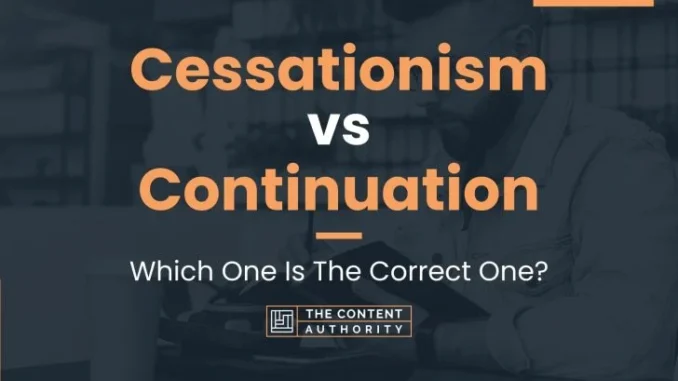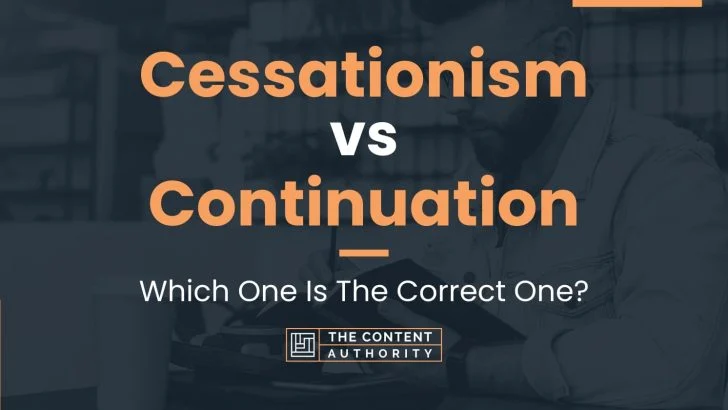
Footnote: Navigating Diverse Perspectives on Christian Doctrines
Within the realm of Christian theology, there exists a wide array of interpretations and perspectives on various doctrines, some of which may seem contradictory or contentious. Examples include differing views on the timing of the rapture and the beginning of the tribulation, as well as debates surrounding eternal security versus the possibility of a believer losing their salvation. These divergent viewpoints have been subjects of dispute and discussion for centuries amongst theologians and believers.
It is crucial to recognise that while these doctrinal differences may be significant in shaping individual beliefs and interpretations, they are not essential to the core message of salvation. The foundational tenets of the Christian faith, such as belief in the atoning sacrifice of Christ and the need for repentance and faith in Him, remain constant irrespective of one’s stance on secondary theological matters.
The multiplicity of views on doctrines like the timing of the rapture and eternal security reflects the complexity of interpreting Scripture and the limitations of human understanding. What we believe about these issues is, in essence, our own interpretation or opinion based on our study of Scripture and theological reflection.
However, as time progresses and prophetic events unfold, it is possible that the truth regarding certain doctrines will become clearer. By diligently studying Scripture and engaging with diverse perspectives, believers can develop a deeper understanding of God’s Word and discern the truth amidst differing interpretations.
Therefore, rather than engaging in divisive debates or conflicts over these doctrinal issues, our focus should be on seeking understanding and unity within the body of Christ. By approaching these discussions with humility, openness, and a commitment to truth, we can navigate the complexities of Christian doctrine with grace and discernment.
Ultimately, our goal should be to align ourselves with the revealed truth of God’s Word and to remain receptive to adjusting our views as we grow in knowledge and understanding. As prophetic prophecies unfold in living history, may we be discerning and open-hearted, recognising and embracing the truth as it is unveiled, particularly concerning doctrines such as the timing of the rapture and the beginning of the tribulation.
The Unfolding Legacy of Continuism: Navigating the Path Between Truth and Error

In the intricate tapestry of Christian theology, two contrasting paradigms stand in stark relief: Cessationism and Continuism. These theological viewpoints present distinct narratives regarding the perpetuity of spiritual manifestations and gifts beyond the early days of the Church.
As the debate persists, the Pentecostal Church emerges as a living testament to the enduring reality of Continuism, rooted in the transformative events of Pentecost and guided by the timeless principles set forth in Scripture.
Cessationism, advocated by certain segments of Christianity, posits that the miraculous gifts of the Holy Spirit, as recorded in the New Testament, ceased with the apostolic era or the completion of the biblical canon. This perspective suggests that supernatural manifestations served a specific purpose in the foundational stages of the Church but are deemed unnecessary or obsolete in contemporary times.
Conversely, Continuism affirms the ongoing activity of the Holy Spirit, including the manifestation of spiritual gifts and supernatural phenomena, throughout the Church age. Grounded in the outpouring of the Spirit at Pentecost, Continuism resonates deeply with the Pentecostal Church, which traces its lineage back to this transformative event.
The structure and function of the Church, as delineated in Scripture, provide profound insights into the ongoing work of the Holy Spirit and the vitality of Continuism. In 1 Corinthians 14, the Apostle Paul provides clear guidelines for the orderly exercise of spiritual gifts within the context of corporate worship. This chapter underscores the importance of edification, decency, and orderliness in the manifestation of spiritual gifts for the building up of the Church body. The Pentecostal Church embraces these principles, fostering an environment where spiritual gifts are cultivated and exercised for the common good.
Moreover, Jesus’ commissioning of the 72 disciples in Luke 10 serves as a foundational model for evangelism and mission in the modern Church. As these disciples were sent out to proclaim the kingdom of God, heal the sick, and cast out demons, their ministry was characterised by a reliance on the power and guidance of the Holy Spirit. Similarly, contemporary believers are called to engage in evangelism and mission with a fervent dependence on the Spirit’s empowerment and leading.
Additionally, in Luke 16, Jesus Himself foretold specific signs that would accompany the preaching of the gospel, affirming the supernatural dimension of evangelism and the ongoing work of the Spirit in confirming His word with signs and wonders.
Furthermore, the establishment of the five-fold ministry in Ephesians 4 underscores God’s divine blueprint for equipping and edifying the Church. The apostles, prophets, evangelists, pastors, and teachers are appointed to nurture spiritual growth, facilitate unity, and empower believers to fulfil their calling in Christ. Through their collective ministry, the Church is equipped to engage in the work of ministry and attain maturity in faith.
The emergence of false manifestations and unbiblical doctrines within certain segments of the Pentecostal movement is a sobering reality. These deviations from biblical truth underscore the need for discernment and adherence to the clear teaching of Scripture. However, they do not invalidate the genuine work of the Holy Spirit or provide grounds for embracing cessationism.
In conclusion, the Pentecostal Church stands as a living testament to the enduring reality of Continuism, where the Spirit of God continues to move, empower, and sustain believers in their journey of faith. As we navigate the complexities of theology and practice, let us hold fast to the timeless truths of Scripture and the empowering presence of the Holy Spirit, ensuring that our witness and ministry align with God’s Word and His purposes for His Church.
Discerning Authentic Pentecostal Christianity: A Biblical Perspective
Introduction
Pentecostal Christianity, rooted in the biblical accounts of Acts, Luke, and Mark, has been a powerful force within the Christian tradition. However, in the contemporary landscape, concerns have been raised about certain expressions within the Pentecostal movement that lean towards hyper or extreme practices. This article seeks to explore the essential differences between authentic Pentecostal Christianity, as depicted in the biblical narratives, and certain movements criticised for veering into distorted, experience-driven teachings.
Authentic Pentecostal Christianity
- Biblical Foundation:
- True Pentecostal Christianity finds its foundation in the Book of Acts, where the Holy Spirit was poured out upon believers on the Day of Pentecost. This event, marked by supernatural manifestations like speaking in tongues and prophecy, establishes the scriptural basis for Pentecostal beliefs and practices.
- Commissioning and Authority:
- In Luke 10:1,15-19, Jesus commissions and sends out seventy-two disciples to proclaim the Kingdom of God. The emphasis is on authority over spiritual forces and the power to heal the sick. True Pentecostal Christians recognise the authority given by Christ and engage in Kingdom-focused ministry.
- Great Commission Mandate:
- Pentecostal believers are guided by the Great Commission (Mark 16:14-19), where Jesus instructs his disciples to go into all the world, preach the gospel, and perform signs and wonders. True Pentecostal Christianity places an emphasis on evangelism, making disciples, and the manifestation of spiritual gifts.
Hyper False Pentecostal Movements
- Experiential Overemphasis:
- Hyper Pentecostal movements place an overemphasis on subjective experiences at the expense of solid biblical teaching. There may be an undue focus on seeking supernatural encounters rather than nurturing a deep, grounded faith through the Scriptures and influenced by the Holy Spirit.
- Misapplication of Authority:
- Certain movements misapply the authority given in Luke 10, using it as a justification for unconventional practices or teachings. Authentic Pentecostal Christians understand the authority given by Christ as being aligned with biblical principles.
- New Age Influences:
- Hyper Pentecostal movements and many Mega Churches incorporate New Age influences, blurring the lines between biblical Christianity and unconventional spiritual practices. This leads to a syncretism that dilutes the integrity of the faith. They take New Age teachings and are deceived into believing God is restoring lost truths, which were never truths in the first place.
Conclusion
Distinguishing authentic Pentecostal Christianity from hyper Pentecostal movements requires a discerning approach grounded in biblical principles. While experiences and manifestations have a place in Pentecostal theology, they should always align with the overarching narrative of Scripture and not compromise sound doctrinal foundations. The challenge lies in maintaining a vibrant, Spirit-led faith while avoiding the pitfalls of sensationalism and theological distortion.
However, it is important that once we discern the difference between the error of Hyper False Pentecostalism and true biblical Pentecostals, that we don’t swing to the opposite extreme of Cessationism.
Striking a Balance: The Pitfalls of Hyper Pentecostalism and Cessationism
Introduction
In the diverse tapestry of Christian beliefs, two extreme positions often emerge—Hyper Pentecostalism, characterised by an overemphasis on supernatural experiences, and Cessationism, which asserts that certain spiritual gifts ceased after the apostolic era. This article aims to shed light on how both extremes lead to theological imbalances and deception.
The Essence of Hyper Pentecostalism
- Overemphasis on Experiences:
- Hyper Pentecostalism is often marked by an intense pursuit of spiritual experiences, including speaking in tongues, miraculous heelings, and prophetic utterances. While these manifestations can be authentic, an exclusive focus on experiences may neglect the importance of biblical knowledge and foundational doctrine.
- Syncretism and New Age Influences:
- Hyper Pentecostal movements are incorporating New Age ideologies and practices, blurring the lines between biblical Christianity and unconventional spirituality. This syncretism leads to doctrinal confusion and compromise.
- Prosperity Gospel Tendencies:
- Hyper Pentecostal leaders propagate a prosperity gospel, promising material wealth and health as evidence of God’s favour. This deviation from the biblical understanding of suffering and the sovereignty of God misleads believers.
The Essence of Cessationism
- Denial of Continuation of Spiritual Gifts:
- Cessationism holds that certain spiritual gifts, such as prophecy, tongues, and healing, ceased after the apostolic era. While this perspective seeks to maintain doctrinal purity, it inadvertently limits the work of the Holy Spirit in believers’ lives.
- Quenching of the Spirit:
- Cessationism quenches the Spirit’s activity in the present age. God’s ongoing work through spiritual gifts is downplayed or denied, hindering believers from fully embracing the supernatural aspects of their faith.
- Erosion of Expectancy for Miracles:
- Cessationist beliefs lead to a diminished expectancy for God’s miraculous interventions in the contemporary world. This scepticism hinders believers from fervently seeking God’s supernatural guidance and intervention in their lives.
Striking a Balance
- Biblical Foundation:
- Both Hyper Pentecostalism and Cessationism should return to a solid biblical foundation. The Scriptures must be the ultimate authority, guiding believers in discerning the authentic work of the Holy Spirit.
- Embracing Diversity in Unity:
- Acknowledging the diversity of spiritual gifts and experiences within the body of Christ is crucial. Christians should seek unity amidst diversity, recognising that the Holy Spirit manifests His gifts in various ways.
- Focused on Christ-Centered Theology:
- Christ-centered theology must remain at the forefront. Whether one leans towards Hyper Pentecostalism or Cessationism, the central focus should always be on Jesus Christ, His redemptive work, and the glory of God.
Conclusion
Theological extremes, whether in Hyper Pentecostalism or Cessationism, lead to deception and hinder the holistic growth of believers. Striking a balance involves returning to the core tenets of biblical Christianity, embracing the diversity of spiritual gifts, and maintaining a Christ-centered perspective that fosters unity in the body of Christ.
Compiled by Kevin Piper
